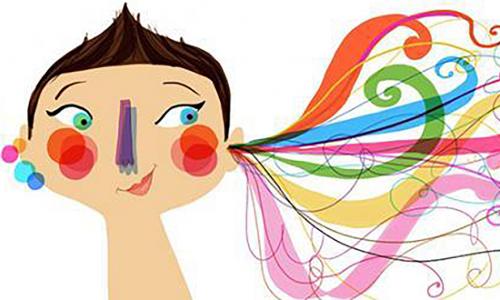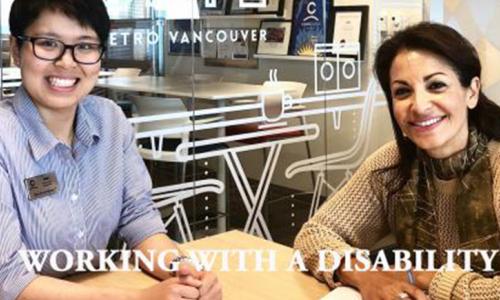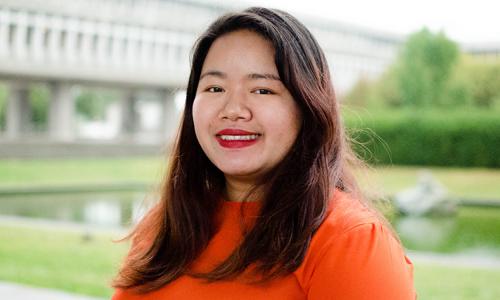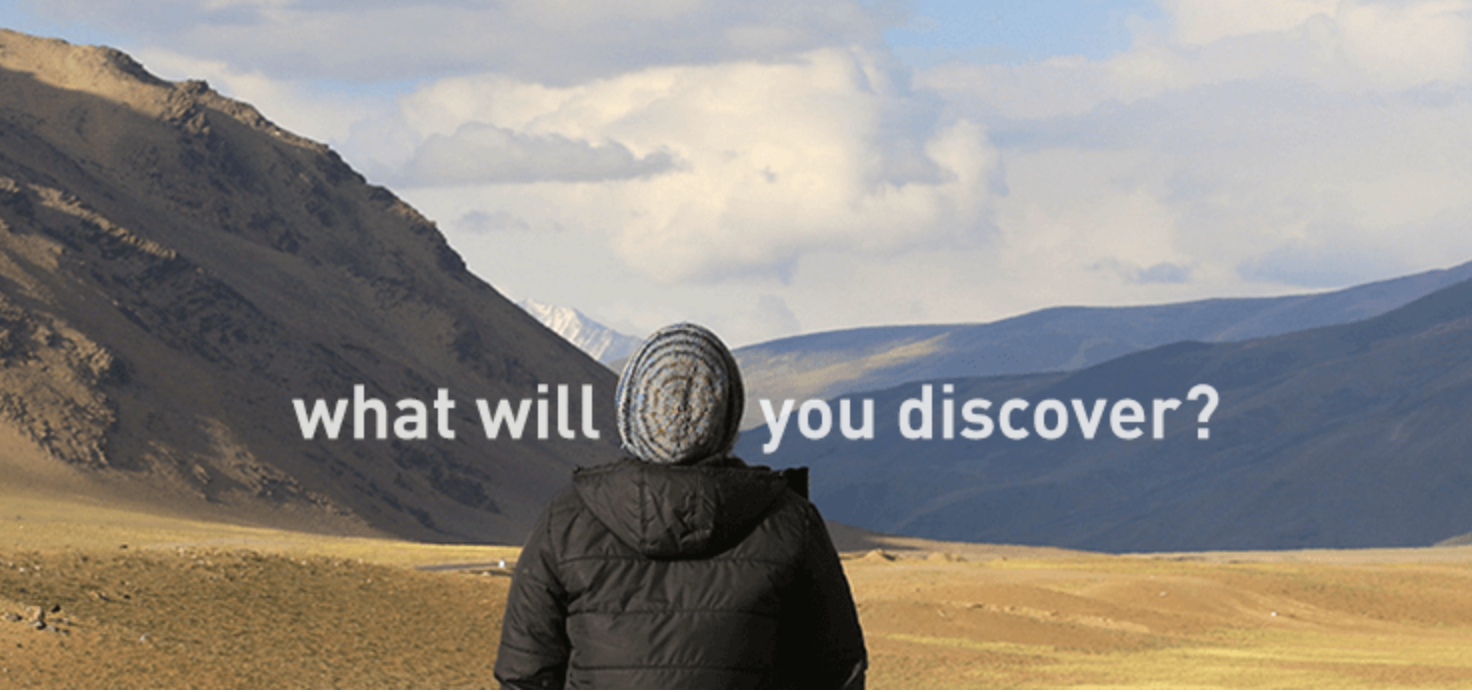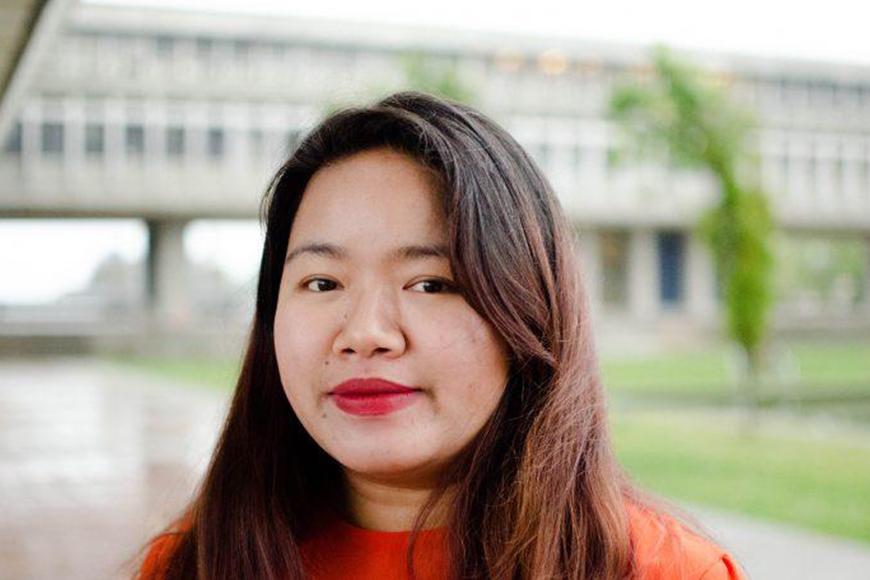
When I first meet Jien Hilario, she’s drinking Starbucks iced coffee and wearing colourful, beaded earrings. She tells me she loves to sing, dance, and write, and is close to her two younger brothers and her church. She’s not exactly the ‘stereotypical’ picture of disability.
Yet Hilario, a fourth-year SFU psychology student, lives with disability in the form of depression, anxiety, and psychosis, a condition that affects a person’s sense of reality. For the past year, she’s been working on an upcoming blog series to speak out about her experiences.
The project started as a joint initiative between the SFU Centre for Students with Disabilities and SFU Career and Volunteer Services. The two departments posted a work position seeking a student to write about and research disability. Hilario jumped on the opportunity, and since then has written over a dozen blog articles for the project. They are being rolled out at SFU’s Online Learning Community.
Hilario was only 12 when she began to realize she was experiencing things that her classmates were not. The next six years were an on-again, off-again battle with her mental health, culminating in a deep depressive period during her transition into university. At age 18, finally, she was given a diagnosis, but her battle continued. From there she began the intensely personal journey of healing her brain.
To medicate or not to medicate? To disclose or not to disclose? To self-identify or not to self-identify? Mental disability can be subject to discourse and debate that physical disability is not. “I had a lot of people telling me different things,” she says. “But I know myself, and I respect other people’s beliefs, so I just have to work with that.”
Unfortunately, Hilario’s story is not an unusual one. Navigating a sea of conflicting cultural and family beliefs about mental health is a process that many students feel like they must go through alone. According to the Centre for Addiction and Mental Health, “[y]oung people aged 15 to 24 are more likely to experience mental illness . . . than any other age group,” while the Canadian Mental Health Association reports that “[s]uicide is the second-most common cause of death among young people.”
In North America, taboos are breaking down, but stigma and misinformation still abound. “People will say medication is unnecessary, that all you need is exercise and a positive mindset,” Hilario says. “But you wouldn’t tell a diabetic person to stop taking their insulin and just think positively.”
October 10 is World Mental Health Day, an annual international movement dedicated to mobilizing and raising awareness for mental health issues. Hilario believes that this awareness can begin with one simple and personal tool: storytelling.
“I would love to hear other people’s stories,” she says. “You don’t have to get as personal as I do — I am a pretty open book — but I think that sharing stories can help other people change their mindsets. Not everyone has a mental illness . . . but everyone deals with their mental health.” Encouragingly, 24% of millennials said they’ve opened up about mental health online or on social media in the past year, according to Ipsos.
Hilario’s blog, I AM ABLE: From Art to Advocacy, an Insider’s View of Students Living with a Disability, covers a range of diverse and sometimes controversial topics from the disclosure of mental illness to employers, to a discussion of non-disabled privilege, to volunteerism as an educational tool, to a review for an anxiety management phone app called Mindshift.
“That article was the most fun to write,” she laughs. “It was like writing a diary. I remember I was out clubbing one time, but I didn’t want to dance anymore because my feet hurt. So I sat down in the club and wrote about Mindshift.”
Though Mindshift and its meditation exercises didn’t necessarily work for her, talking to people did. Speaking out is especially cathartic for Hilario whether she does it at her Wednesday night youth group or a potentially unlimited blog audience.
“I know there are people who [are feeling alone] but are afraid to speak out,” she says. “I would say just talk to one person you trust. It doesn’t have to be a parent or a family member — it can just be one person that you know cares about you.”
Mental illness shows itself overwhelmingly in late adolescence, often set off by overwhelming new sets of life stressors that come with the transition to adulthood. This means post-secondary institutions are confronted with a complex question: how should they tackle what Maclean’s is calling a “[student] mental health crisis?” Optimistically, SFU departments across campus are beginning to realize that recognizes health and wellness and university success as uniquely intertwined. Hilario’s blog is just one step towards a campus-wide commitment to talking, teaching, and learning about invisible disability.
But at a more personal level, what would make the blog project success to Hilario?
“One of my lifelong dreams is to change the world,” she smiles. “So if I can change one person’s mind, I’m on my way.”
Beyond the Blog
-
Interested in learning more about Jien's journey? Read her story in her own words by visiting I AM ABLE: From Art to Advocacy
-
Are you an SFU student looking for resources on campus? Visit SFU's Health & Counselling office or the Centre for Student's with Disabilities.
-
Need to talk now? YouthInBC.com is an online hotline where you can access free, anonymous, and non-judgemental support and education from a trained crisis volunteer.
-
This article was originally published in The SFU Peak.










